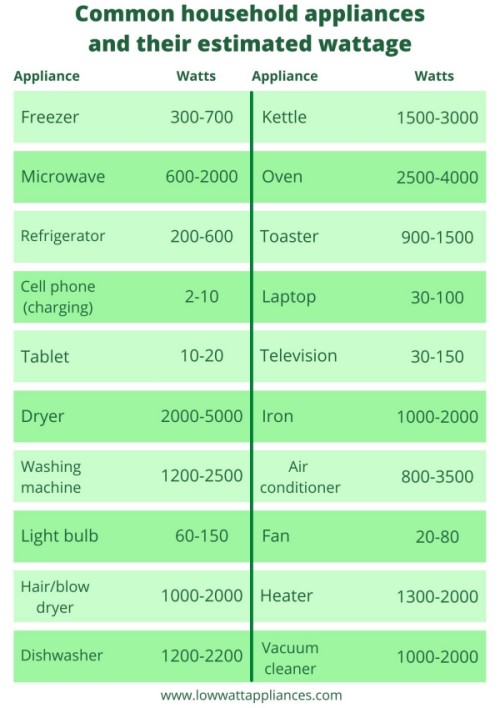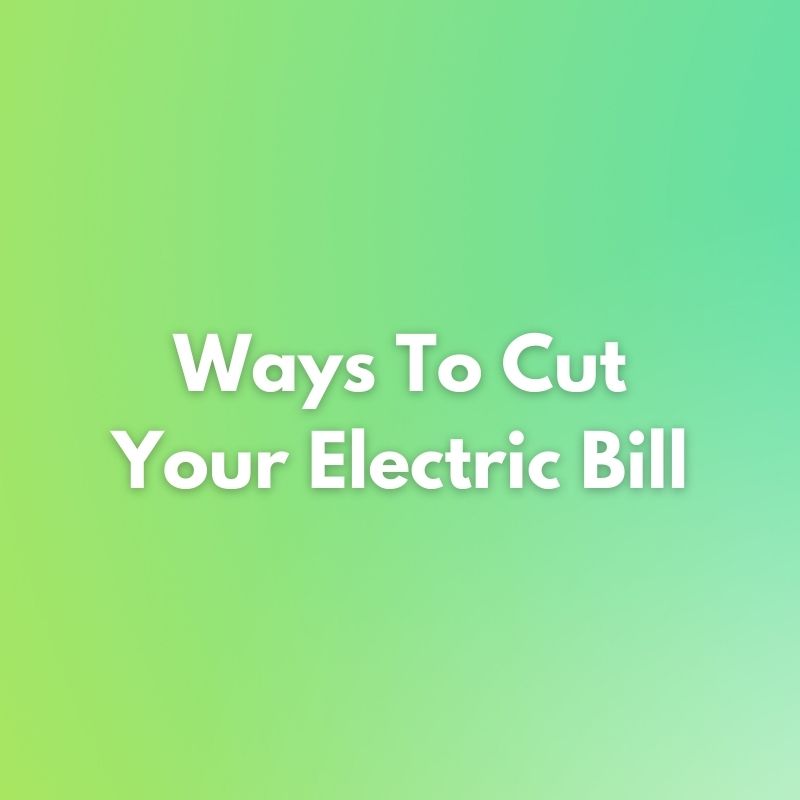Low Wattage FAQs
When considering buying a new appliance, you should always take into account how much it will cost to run, as these costs will add up over time.
There are many energy-efficient appliances on the market today that have been designed specifically to use less electricity than other models. These are known as low watt appliances.
What is wattage (watts)?
Wattage is a measure of how much electrical energy an appliance or device consumes in a specific amount of time.
The measurement is expressed in Watts (kW), kilowatts (kW), megawatts (mW) or gigawatts (gW).
Why is it important to know the wattage of appliances?
It’s important because the higher the wattage, the more electricity the appliance will consume and in turn, the higher your electric bill will be.
If you know your equipment’s wattage, you can calculate the cost for running it per hour and then multiply that number by how many hours a day you run it to get your daily (and monthly) costs.
How is wattage calculated?
Wattage is calculated by multiplying the voltage of the device by the amps.
For example, if you have a 120 volt (120V) appliance that draws 5 amps (5A), then it has a wattage of 600 watts (600W).
What does low wattage on an electrical appliance mean?
Low watt appliances use less energy than standard appliances. They’ve been built specifically to consume less energy and be cheaper to run. Often, though not always, they are designed for use where low electricity costs are necessary. For example, in caravans and RVs.
Which appliances are considered high wattage?
Appliances that produce heat require much more energy than those than don’t, and are thus said to be high wattage by default.
Which kitchen appliances use the most power?
Kettles, toasters, blow dryers, and ovens use the most power.
Although nowadays you can find the aforementioned appliances that consume less energy than usual, by nature, they’ll always need to be somewhat high wattage in order to function properly.
What appliances and devices are considered low watt?
Appliances and devices considered low wattage by default are those that aren’t heat producing. These would be cellphones, laptops, televisions, refrigerators etc.
If you notice, these are everyday devices that usually require long, extensive use (like a refrigerator, which needs to be plugged in 24/7). If they consumed more energy, it would be impractical (and costly) to run them as often as we do.
How much do low energy consumption appliances cost?
The good news is that low watt appliances often cost less to buy than standard appliances, because they’re usually cheaper to make.
“Can the right appliance save me money?”
The right appliance can absolutely save you money! Lower watt appliances consume less power, meaning you’ll save money on your monthly electric bill.
Which appliances are more effective – low watt or high watt?
Naturally, some appliances will perform better if their wattage is higher, but that isn’t always the case.
Manufacturers have been forced to build appliances that are more energy efficient in order to comply with eco-friendly standards. Thus, there are many high quality low wattage appliances on the market today which provide equivalent or greater function than their standard, higher watt counterparts.
In other words: an appliance’s performance won’t necessarily be impacted by its lower energy consumption.
Who should buy low wattage appliances?
Such appliances are most handy in places where power supply is limited. A person should consider buying low watt appliances if:
- they live in a tiny home that’s off grid
- they use solar panels or generators as their main energy source
- they have an RV/caravan
In general, though, everyone, where possible, should seek to buy appliances with low/lower than usual wattage, not just for environmental reasons, but for financial ones.
List of the average watts of common household appliances/devices:



